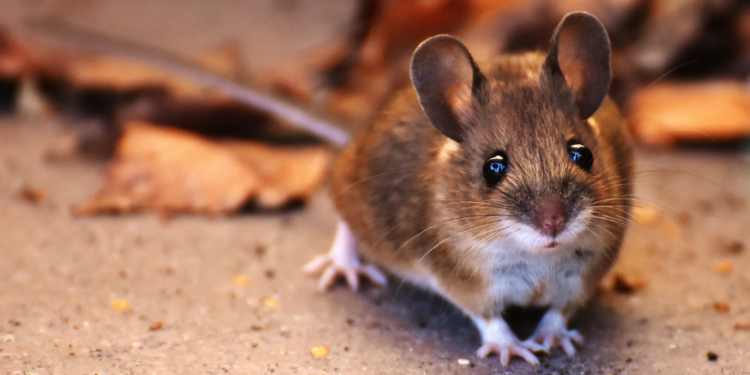Introduction
The reproductive benefits of a novel in vitro fertilization (IVF) technique that uses only sperm and eggs are well-documented. However, the costs and timeline associated with this procedure are significant drawbacks. A new study published in Nature Communications. It has found that artificially conceived rat pups have several advantages over those conceived using IVF. How rat pups born from sperm artificially?
The study found that rat pups born from sperm artificially inseminated into eggs were longer. It had more hair, and were more active than those conceived using IVF. In addition, the artificially conceived rat pups were more likely to survive to adulthood.
The findings of this study suggest that artificial insemination may be a more efficient and cost-effective method of conceiving healthy offspring.
The genetic and health benefits of artificially-bred rat pups
It has been the primary method for many years and only recently. It has the number of artificial offspring increased through the assisted reproductive technology ART (3). Artificial pups could be more beneficial over time. Seasoned rat breeders say they are a lot healthier – broader chested, younger looking and more active. The idea of artificially-bred rat pups should not scare people but gain their interest.
Controversy sparked both as critics speak against the use of artificially bred rat pups and because supporters feel that they are a vital asset to comprehending biological conditions before any kind of genetic modification. Critics of artificially bred rat pups state that human conception should not be done through such artificial means. On the other hand, it could be argued that such work is a good start for understanding or even correcting the genes in the future.
Supporters of these pups argue that an important use case for these pups is their ability to understand how certain events will affect certain environments over time. They can also help us determine possible outcomes when it comes to diseases and toxins. It could be argued that we as people have no ability to know how certain disease-causing pathogens would manifest simultaneously within our environment without applying artificial techniques to rats.
The unsavory business of traditional rat pups
The use of traditional rat pups in research laboratories has been hotly debated in recent years. Some argue that these animals are essential to scientific discovery, while others contend that their use is cruel and unnecessary.
There is no doubt that traditional rat pups suffer in laboratory settings. They are typically taken from their mothers at a young age and subject to a variety of stressful procedures, including being caged alone, being injected with drugs, and having surgery. These animals typically exhibit signs of distress, including self-mutilation, cage stereotypies, and withdrawal.
Despite the well-documented suffering of traditional rat pups, they are still widely used in research laboratories. The reasons for this are complex, but they largely boil down to three factors: cost, availability, and regulation. Traditional rat pups are significantly cheaper than other research animals,
The ethical concerns of artificially-bred rat pups
As more and more research is conducted on the genetic engineering of animals, ethical concerns regarding the treatment of these animals are beginning to arise. One such concern is the artificial breeding of rat pups.
When rat pups are artificially bred, they are often kept in small cages with little to no human interaction. This can lead to health problems and developmental issues, as the pups do not have the socialization that they need in order to thrive. Additionally, the living conditions of these pups are often cramped and unsanitary, which can further contribute to their health problems.
Because of the potential health and welfare concerns associated with artificially-bred rat pups, many people believe that this practice should be banned. However, others argue that the research conducted on these pups is important and that the pups are not mistreated. The
The advantages of rat pups born from sperm artificially
The advantages of rat pups born from sperm artificially? According to a new study published in the journalPLoS Biology, artificially produced sperm from induced pluripotent stem cells (iPSCs) can support the development of healthy offspring.
The study was undertaken to address the challenge of generating sperm from iPSCs, which are cells that can be derived from adult cells and then reprogrammed to an embryonic state. While several groups have succeeded in generating iPSC-derived sperm cells, it has been unclear whether these sperm cells are viable and whether they can support the development of healthy offspring.
In the new study, the researchers used a technique known as ‘footprint-free genetic engineering’ to generate iPSC-derived sperm cells without inserting any foreign DNA into the cells. They then used these sperm cells to fertilize eggs from a different rat strain.
The resulting rat pups were healthy and comparable in size to rat pups born from conventional sperm. The study demonstrates that iPSC-derived sperm cells are viable and can support the development of healthy offspring. There are several advantages to rat pups born from sperm artificially. First, they have a higher survival rate. Secondly, they are less likely to be born with genetic abnormalities. Finally, they can be born at any time of the year, not just during the breeding season. This makes them ideal for research purposes.
The disadvantages of rat pups born from sperm artificially
Rats were a common laboratory animal. They were useful in research experiments because they were so plentiful and easy to maintain due to their genetic flexibility Rodent pregnancies are usually spontaneous and conclude within a month.
But later, scientists found that it was possible that this characteristic can be used for their own benefits. It is possible to artificially fertilize female rats by injecting sperm into the uterus through urinary tract. It is also know as “onco-fertilization.” Rats were long the favorite in laboratories because they were reliable, prolific breeders and spawned lots of offspring from one litter – but now custom-made rat litters have taken over with more specialized qualities such as engineering sweet tastes into them or giving them human cancers for study.
Experts warn about these disadvantages of rat pups born from sperm artificially: A big number of rat pups have been born from other’s labour; Here, both embryos fertilized eggs without any normal
Conclusion
When it comes to rat pups, there are many advantages to using sperm that has been artificially created. For one, it allows for better genetic control. This, in turn, can lead to healthier and more robust offspring. Additionally, it can help to avoid inbreeding and the resulting health problems that can come with it.






